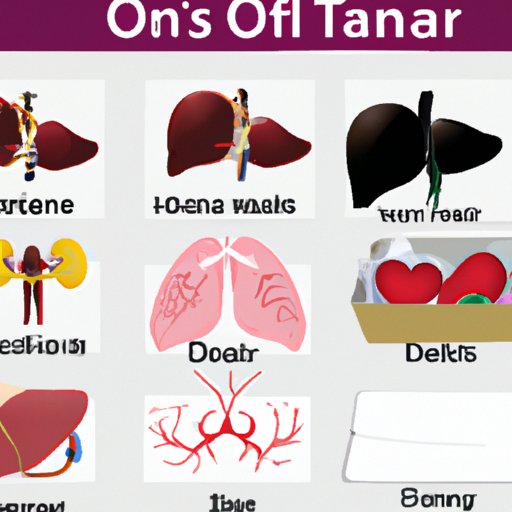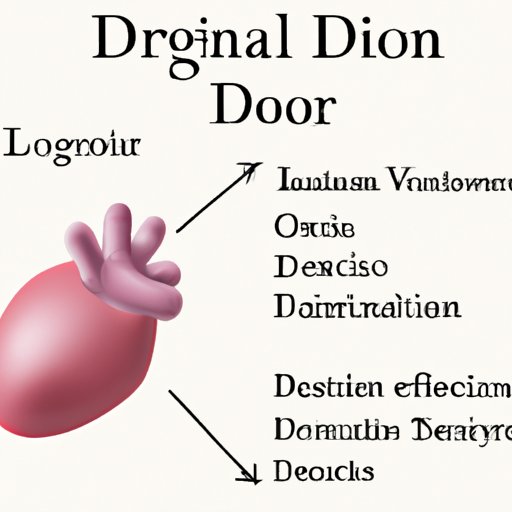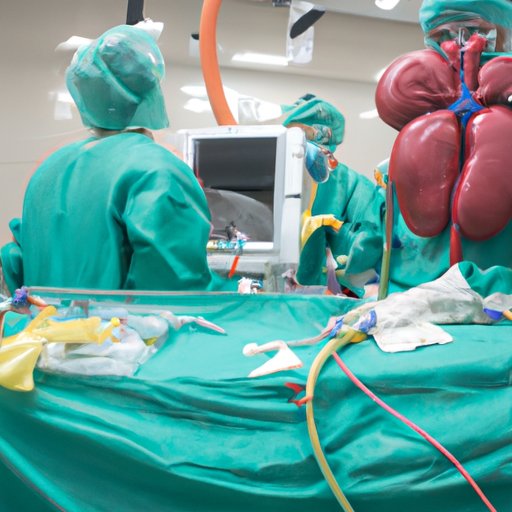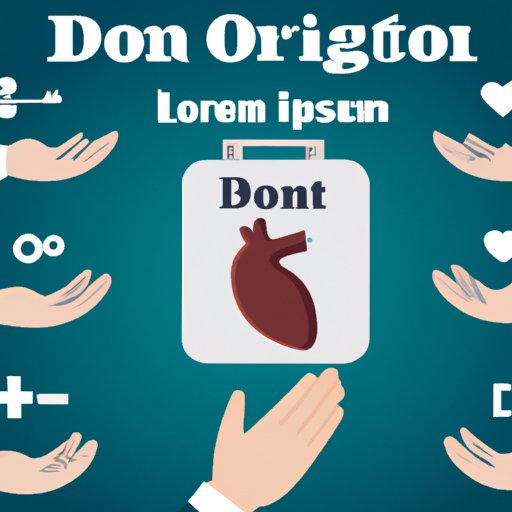Introduction
Organ donation is the process of surgically removing an organ or tissue from a living or deceased donor and transplanting it into another person. This life-saving procedure has the potential to improve the quality of life for thousands of people around the world. To understand the process better, let’s take a closer look at how organ donation works.

Types of Organs and Tissues That Can Be Donated
Many different organs and tissues can be donated, depending on the individual donor and the recipient’s needs. The most commonly donated organs are the heart, lungs, kidneys, liver, pancreas, intestines, corneas, skin, and bone marrow.
The Importance of Organ Donation
Organ donation has a profound impact on those who receive the organ or tissue. According to the U.S. Department of Health and Human Services, “Organ transplantation saves lives and improves the quality of life for hundreds of thousands of people each year.”
Organ donation also provides life-saving benefits to recipients. For example, a kidney transplant can help someone suffering from renal failure lead a normal life. Similarly, a heart transplant can restore the health of someone whose heart is failing.
Potential Risks Associated with Organ Donation
Although organ donation can save lives, there are potential risks involved. One of the most common risks is physical. During surgery, the donor may experience pain, discomfort, and even bleeding. Additionally, the body may reject the transplanted organ, which can lead to serious complications.
In addition to physical risks, there can also be psychological risks associated with organ donation. Donors may experience anxiety or depression related to the procedure, as well as feelings of guilt or regret.

Legal Aspects of Organ Donation
When it comes to organ donation, there are certain legal considerations that must be taken into account. First and foremost, the donor must provide informed consent. This means that they must be aware of the risks and benefits of organ donation, and must be willing to proceed with the procedure.
In addition, there are regulations in place to ensure that the process is conducted ethically and legally. For example, in the United States, all organ donations must be approved by the Organ Procurement and Transplantation Network (OPTN).

Role of Medical Professionals in the Organ Donation Process
Medical professionals play a crucial role in the organ donation process. Before a transplant can take place, the donor must undergo a thorough screening and evaluation to ensure that they are healthy enough to donate. This includes tests to determine whether the organ or tissue is suitable for transplantation.
Once the donor is deemed eligible, the medical team will perform the necessary surgery to remove the organ or tissue. Afterward, the team will monitor the donor’s recovery to ensure that they are healing properly.
Conclusion
Organ donation is an important and life-saving procedure that has the potential to improve the quality of life for countless individuals. While there are potential risks associated with the process, these can be minimized with proper screening and evaluation. Furthermore, there are legal regulations in place to ensure that the process is conducted ethically and legally. Ultimately, organ donation is an incredibly powerful gift that has the potential to save lives.
If you’re considering becoming an organ donor, we encourage you to learn more about the process and talk to your doctor about any questions or concerns you may have. Together, we can make a difference in the lives of those in need.
(Note: Is this article not meeting your expectations? Do you have knowledge or insights to share? Unlock new opportunities and expand your reach by joining our authors team. Click Registration to join us and share your expertise with our readers.)
